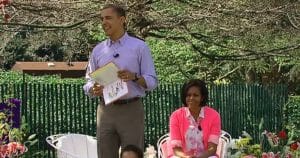Cornel West Denied Pennsylvania Ballot Entry, Court Rules
Independent presidential candidate Cornel West will not appear on Pennsylvania's ballot this November, following a recent court decision.
In a significant ruling on Friday, a Pennsylvania court blocked Cornel West from the state's upcoming presidential ballot due to insufficient paperwork.
The Commonwealth Court of Pennsylvania, presided over by Judge Renee Cohn Jubelirer, delivered a decisive blow to West's campaign ambitions. In a detailed 15-page opinion, the judge sided with arguments from the Secretary of State's office that West's candidacy lacked necessary affidavits for a majority of his designated presidential electors.
Legal Challenges Affect Third-Party Campaigns
Judge Jubelirer, a Republican affiliate, emphasized that minor-party presidential electors are effectively candidates and are thus required to submit affidavits confirming their candidacies. The court's decision aligns with the state's stringent requirements for third-party entrants.
This judicial ruling comes amidst broader legal battles involving supporters of both major party nominees, with maneuvers by both Republican Donald Trump and Democrat Kamala Harris influencing the landscape for third-party candidates.
According to the ruling, West's campaign failed to provide the necessary documentation for 14 out of 19 electors, a shortfall that proved fatal to his efforts to secure a spot on one of the most pivotal battleground state ballots.
Impact on the Presidential Election in Pennsylvania
Pennsylvania, known for its critical role in presidential elections, offers 19 electoral votes. The absence of West from the ballot could influence the dynamics of the election, particularly among independent and third-party voters.
West's legal representative, who has previously worked with Republican candidates, did not confirm whether an appeal to the Pennsylvania Supreme Court would be pursued. The decision to not appeal could finalize West's exclusion from the ballot.
The ruling also follows a notable withdrawal from Robert F. Kennedy Jr., another independent candidate, who suspended his presidential campaign and endorsed Donald Trump. Kennedy's decision was influenced by a desire to avoid affecting the election outcome in critical states.
Other Third-Party Candidates and Their Status
While West and Kennedy face setbacks, other third-party candidates have navigated the electoral obstacles more successfully. The Green Party's Jill Stein and Libertarian Party's Chase Oliver have both managed to place their names on Pennsylvania's ballot without incident.
Conversely, the Party for Socialism and Liberation is dealing with its own challenges, as its candidate Claudia De la Cruz was removed from the ballot. An appeal is planned, according to party representatives.
These varied outcomes highlight the complex and often contentious nature of ballot access for candidates outside the two major parties in the United States.
Broad Implications for Future Elections
The legal and procedural hurdles faced by third-party and independent candidates underscore the challenges within the U.S. electoral system. These issues often lead to significant debate about the fairness and openness of American elections.
As the election approaches, the implications of these decisions remain a key topic of discussion among voters and analysts alike. The exclusion of candidates like West and Kennedy could reshape voter turnout and preferences, particularly among those disillusioned with the traditional two-party system.
With the election scheduled for November 5, all eyes remain on Pennsylvania, a state that could very well decide the next occupant of the White House.




